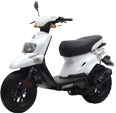







& D'INSCRIPTION
DRULINGEN
Lundi de 19:00 à 20:00
Vendredi de 19:00 à 20:00
Samedi de 13:00 à 14:00
CONTACTEZ-NOUS
Tel: 03 88 00 61 56Mob: 06 70 26 80 33
Mail: cliquez ici

There is no single formula for writing a longer essay, as the length and complexity of the assignment will vary depending on the subject matter and the professor’s instructions. However, there are a few general tips that can help you write a longer essay that is clear and concise.
The first step is to come up with a thesis statement or main idea that will guide your essay. This should be something that you can develop and support throughout the paper. Once you have a thesis, you can begin to outline your essay. This will help you to organize your thoughts and ensure that your argument is clear.
When writing the body of your essay, be sure to break it down into logical paragraphs. Each paragraph should have a specific point that you are trying to make, and you should back up your points with evidence from your research. Make sure to avoid rambling and excessive detail, as this can make your essay difficult to read.
The conclusion of your essay is your opportunity to wrap up your argument and leave the reader with something to think about. You can also highlight the main points of your essay and remind the reader of your thesis.
If you are struggling to write a longer essay, there are a few things that you can do to make the process easier. First, make sure that you allow yourself enough time to complete the assignment. Break the essay down into smaller parts and make a schedule for yourself so that you can stay on track. You can also enlist the help of a tutor or a friend to proofread your essay and offer feedback. Finally, practice writing essays in advance so that you are familiar with the process.
Effective Research and Information Gathering
Find paper help resources at Writing Paper Help.
When you are given an essay assignment, it is important to take the time to understand the requirements and ask the teacher any questions you may have. This will help you to determine the scope of the project and the amount of research that will be necessary. In order to write a longer essay effectively, you need to gather information and conduct research.
In order to conduct effective research, you need to first have a clear understanding of the topic. When you are looking for sources, it is important to find reputable sources that offer accurate information. You can find reputable sources by looking for journals or books that are published by academic institutions or by checking the website’s credibility rating.
Once you have gathered a number of sources, it is important to read them thoroughly and take notes. You should also outline your essay and create a working thesis statement. Once you have a good understanding of the topic and have gathered information, you can start writing your essay.
When writing a longer essay, it is important to break it down into manageable sections. You can do this by creating an outline and by writing a paragraph or two at a time. This will help to ensure that your essay is well-organized and that your thoughts are clear.
In order to make your essay longer, you can include additional information such as examples, statistics, and quotations. You can also add a conclusion paragraph to your essay. This will help to summarize your thoughts and to leave the reader with a clear understanding of your argument.
By following these tips, you can write a longer essay that is well-organized and informative.
In-Depth Planning and Outlining
When most students think about essay writing, they think of a short, five-paragraph essay. However, essay writing can be extended to longer forms, such as the 10-20 paragraph essay. The key to writing a longer essay is to plan and outline your ideas before you start writing. This will help you stay on track and ensure that your essay is well-organized.
The first step in planning a longer essay is to come up with a good topic. Choose a topic that you are interested in and that you know a lot about. Next, come up with a thesis statement. Your thesis statement should be a clear statement of your main argument.
Once you have a topic and a thesis statement, you can begin planning your essay. Start by creating an outline. Your outline should list the main points that you want to cover in your essay. Once you have your outline, start writing your essay.
Be sure to stay on topic and to use your outline as a guide. If you find that you are running out of ideas, take a break and come back to your essay later. You can also ask someone else to read your essay and give you feedback.
Writing a longer essay can be challenging, but with careful planning and outlining, you can write a well-organized and well-written essay.
Developing Strong and Coherent Paragraphs
When you’re writing a longer essay, it’s crucial to develop strong, coherent paragraphs.Each paragraph should have a clear topic sentence, and all of the sentences within it should relate back to that topic. This not only makes your essay easier to read, but it also makes it more logical and coherent.
To write strong and coherent paragraphs, follow these tips:
1. Start each paragraph with a topic sentence.
This is the most important rule for writing effective paragraphs. Each paragraph should have a clear topic sentence that introduces the main point of the paragraph. All of the sentences in the paragraph should then relate back to that topic sentence.
2. Make sure all of your sentences are related to each other.
Each sentence in a paragraph should be related to the topic sentence, and to the other sentences in the paragraph. This helps to create a logical, coherent paragraph.
3. Use supporting details to illustrate your points.
If you want your paragraph to be effective, you need to provide supporting details to illustrate your points. Don’t just rely on your own opinion; back up your points with evidence from the text or from other sources.
4. Use transition words to connect your paragraphs.
If your paragraphs are disconnected, your essay will be difficult to read. Use transitional words and phrases to connect your paragraphs and create a smooth flow.
5. Make sure your paragraphs are the correct length.
Your paragraphs don’t all need to be the same length, but you should be careful not to have too many short paragraphs or too many long paragraphs. Paragraphs that are too short can seem choppy and disorganized, while paragraphs that are too long can be difficult to follow. Try to aim for paragraphs that are around 5-7 sentences long.
Expanding on Ideas with Supporting Evidence
When writing an essay, it is important to provide clear and concise arguments that are supported by evidence. However, once your argument is established, you may want to provide further evidence to support your point of view and expand on your ideas. This can be done by providing additional examples, statistics, expert opinions, and other relevant information.
One way to provide additional support for your argument is to use specific examples. For instance, if you are arguing that a certain policy is ineffective, you can provide examples of times when the policy was not successful. If you are arguing that a certain event had a negative impact on the community, you can provide specific details about the event. By using specific examples, you can help your reader to understand your argument better.
Another way to provide additional support for your argument is to use statistics. For example, if you are arguing that a certain policy is ineffective, you can provide statistics that show how the policy has not been successful. If you are arguing that a certain event had a negative impact on the community, you can provide statistics that show the event’s negative effects. By using statistics, you can help your reader to understand your argument better and to see that your argument is supported by evidence.
You can also provide additional support for your argument by using expert opinions. For example, if you are arguing that a certain policy is ineffective, you can provide quotes from experts who say that the policy is not successful. If you are arguing that a certain event had a negative impact on the community, you can provide quotes from experts who say that the event was harmful. By using expert opinions, you can help your reader to understand your argument better and to see that your argument is supported by evidence.
Finally, you can provide additional support for your argument by providing other relevant information. For example, if you are arguing that a certain policy is ineffective, you can provide information about the history of the policy. If you are arguing that a certain event had a negative impact on the community, you can provide information about the event’s history. By providing other relevant information, you can help your reader to understand your argument better and to see that your argument is supported by evidence.
Managing Length without Filler Content
In order to produce a well-written, lengthy essay without filler content, it is important to first understand what is meant by the term ‘filler content’. Filler content is defined as words or phrases that are used to lengthen an essay without contributing to its overall message. In some cases, filler content can even be detrimental to an essay by causing it to be choppy or difficult to read.
There are a few ways to avoid using filler content when writing a longer essay. The most important step is to ensure that all of your points are relevant to the topic at hand. Once you have narrowed your topic down, make sure that each paragraph is focused on a single point. This will help to keep your essay concise and easy to follow.
Another way to avoid filler content is to use strong, descriptive language. Rather than using general terms, try to be specific and use concrete examples whenever possible. This will help to engage your reader and keep them interested in what you have to say.
Finally, it is important to avoid using too many long, complex sentences. When writing a longer essay, break your paragraphs into smaller, easier-to-read chunks. This will make your writing more accessible to your reader and help to avoid any confusion.
By following these tips, you can write a longer essay without having to worry about filler content. By keeping your points concise and using strong, descriptive language, you can produce an essay that is both well-written and easy to read.
Polishing and Editing for Clarity and Conciseness
1. Begin by polishing your essay for clarity. Make sure each sentence is clear and concise, and that your argument is easy to follow. If you find yourself using complex language or jargon, try to simplify your writing.
2. Next, focus on editing for conciseness. Cut out any unnecessary words or phrases, and make sure each sentence is as concise as possible. If you can get your point across in fewer words, do so.
3. Finally, check for grammar and spelling errors. Make sure your essay is free of mistakes, and ask someone else to proofread it for you. A final round of editing can make a big difference in the overall quality of your essay.
